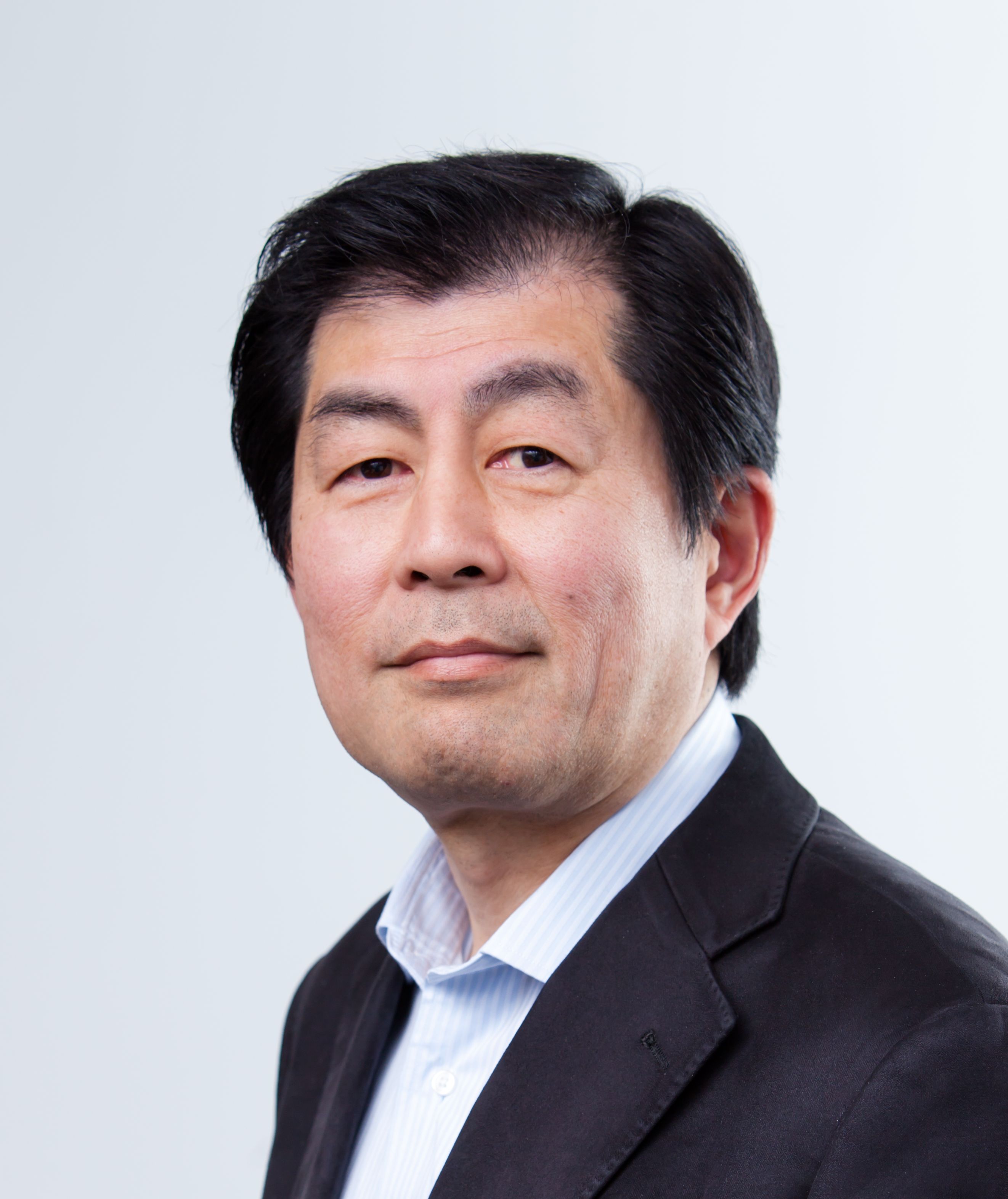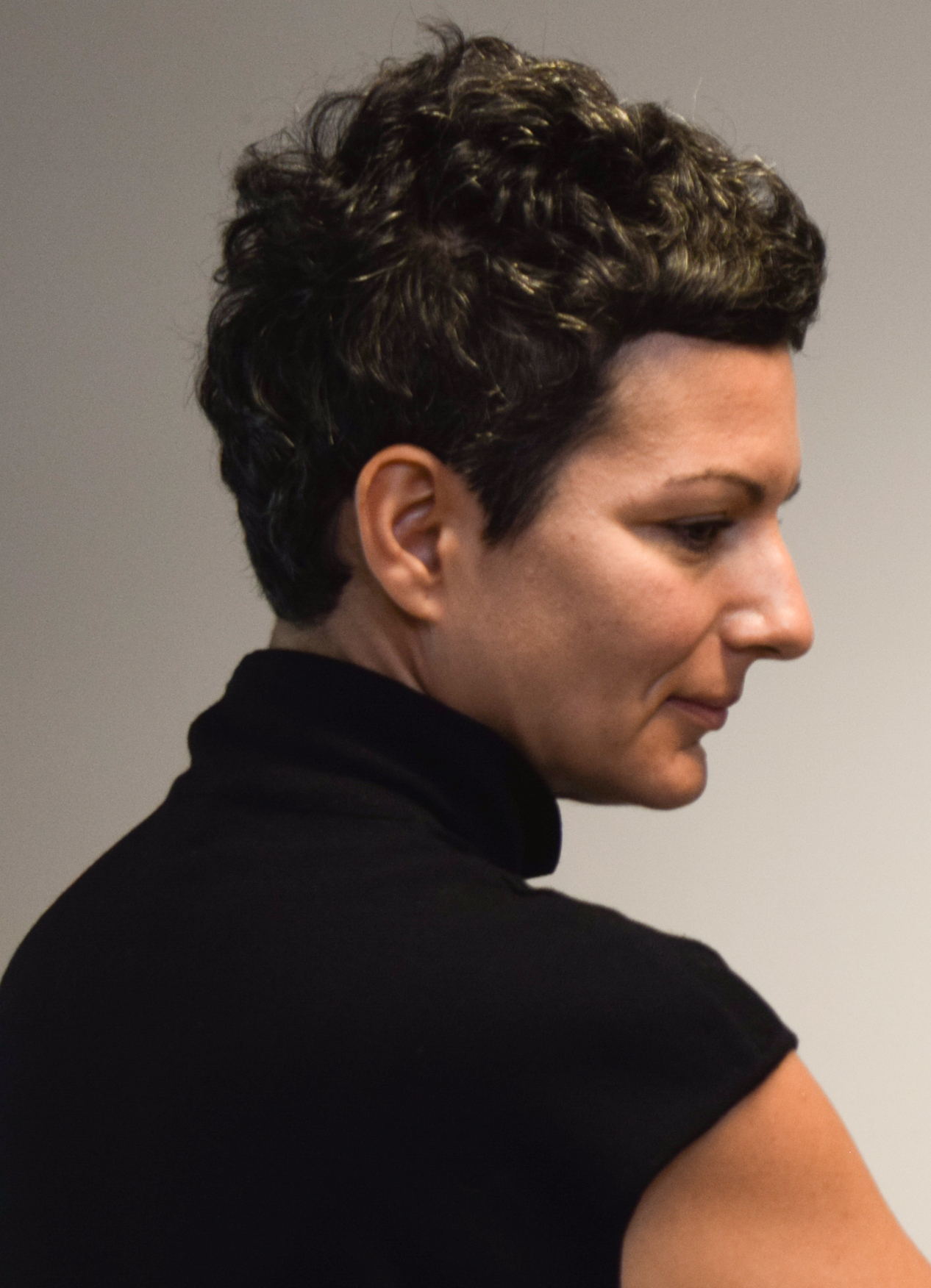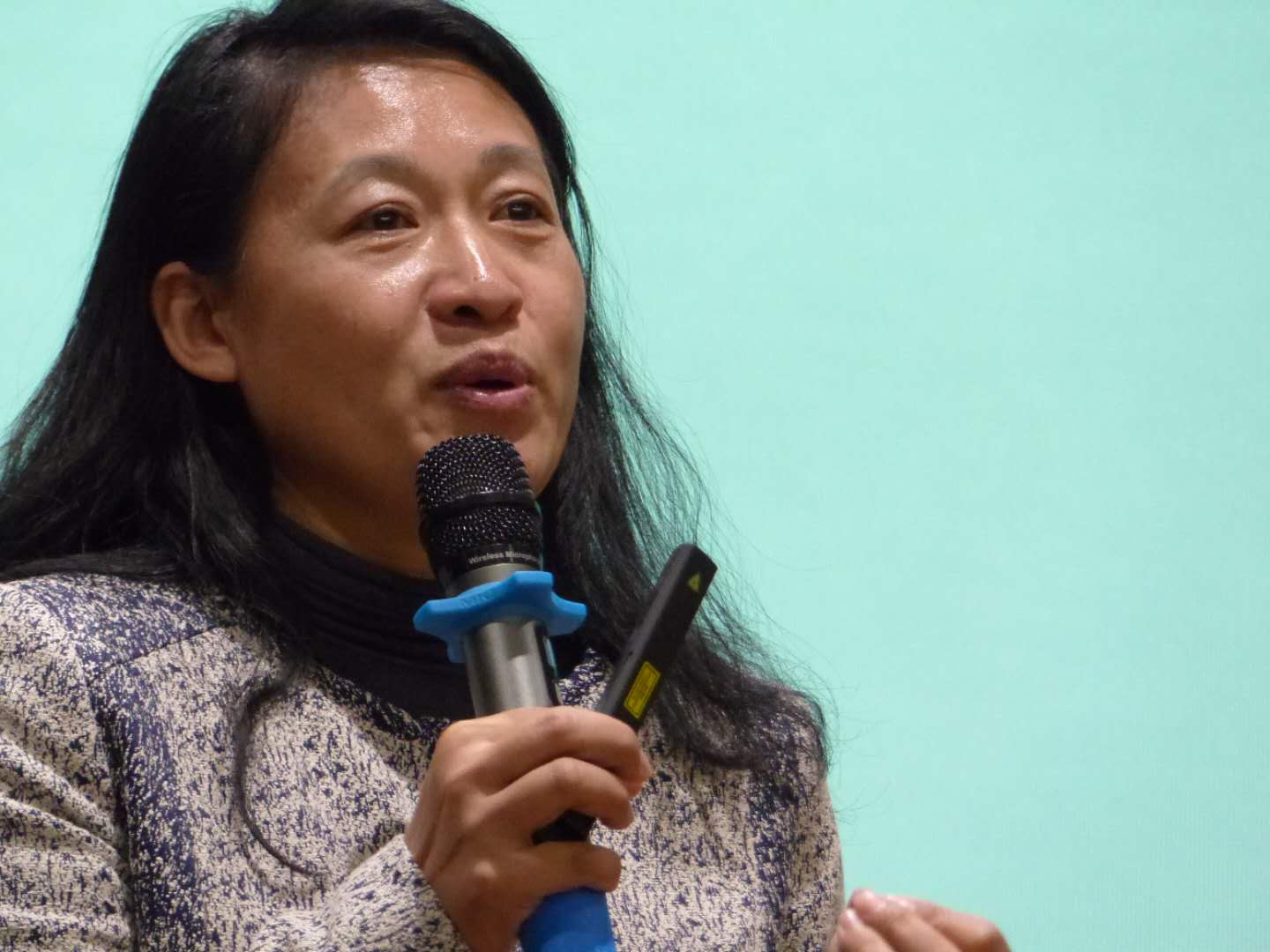Professor Hideyuki Horii
Executive Director, i.school
Emeritus Professor, University of Tokyo
 Professor Horii graduated from Department of Civil Eng., The University of Tokyo in 1980. M.S. in 1981, Ph.D. in 1983 from Northwestern University in the field of Civil Engineering. Assistant Professor in 1985, Associate Professor in 1986 and Professor since 1996 in the Department of Civil Eng., the University of Tokyo. He retired from the University of Tokyo at the end of March in 2018 and is serving as the Executive Director of Japan Social Innovation Center (JSIC) which he established in 2016. He has been running an innovation education program, named i.school since 2009. Published a number of papers in international journals on applied mechanics, rock mechanics, socio-technology, innovation education and books including “Socio-technology: Design of problem-solving”, University of Tokyo Press, 2012. He served as the director of social system investigation team in investigation committee on the accident at the Fukushima nuclear power stations of Tokyo Electric Power Company based on his knowledge on socio-technology.
Professor Horii graduated from Department of Civil Eng., The University of Tokyo in 1980. M.S. in 1981, Ph.D. in 1983 from Northwestern University in the field of Civil Engineering. Assistant Professor in 1985, Associate Professor in 1986 and Professor since 1996 in the Department of Civil Eng., the University of Tokyo. He retired from the University of Tokyo at the end of March in 2018 and is serving as the Executive Director of Japan Social Innovation Center (JSIC) which he established in 2016. He has been running an innovation education program, named i.school since 2009. Published a number of papers in international journals on applied mechanics, rock mechanics, socio-technology, innovation education and books including “Socio-technology: Design of problem-solving”, University of Tokyo Press, 2012. He served as the director of social system investigation team in investigation committee on the accident at the Fukushima nuclear power stations of Tokyo Electric Power Company based on his knowledge on socio-technology.
Session Summary
i.school: cutting-edge innovation education
i.school is an educational program to develop the ability to create innovative ideas of products, services, business models and social systems. It started in 2009 at the University of Tokyo. The importance of human-centered innovation is emphasized in i.school. The i.school’s educational program is composed of workshops for 20-30 participants including people from supporting companies.
i.school is not based on design education. Focus is placed on the workshop process. Methodology for workshop process design has been developed based on the accumulated knowledge on human creativity in cognitive science. Science of innovation education is proposed by i.school to study innovation workshop itself.
As an extension of i.school activities, Japan Social Innovation Center (JSIC) is established as a corporation in 2016. It tries to promote social innovation through collaboration among central and local governments, big and small enterprises and i.school. Innovation workshops with government officials, company workers provide practical experience and educational opportunity for i.school students.
Dr Martin Lackéus
Researcher in Entrepreneurial Education, Chalmers University of Technology
 Martin Lackéus is a researcher in entrepreneurial education at the division of Entrepreneurship and Strategy at Chalmers University of Technology in Sweden. He is also a teacher at Chalmers School of Entrepreneurship. Martin’s research focuses on how individuals develop entrepreneurial competencies in education through value creation processes, and how such processes can be assessed. In 2016 Martin defended his PhD thesis on value creation as a new educational philosophy. Martin also works part-time as an entrepreneur with two IT companies he co-founded – Vehco and Me Analytics. Me Analytics develops the research tool LoopMe.
Martin Lackéus is a researcher in entrepreneurial education at the division of Entrepreneurship and Strategy at Chalmers University of Technology in Sweden. He is also a teacher at Chalmers School of Entrepreneurship. Martin’s research focuses on how individuals develop entrepreneurial competencies in education through value creation processes, and how such processes can be assessed. In 2016 Martin defended his PhD thesis on value creation as a new educational philosophy. Martin also works part-time as an entrepreneur with two IT companies he co-founded – Vehco and Me Analytics. Me Analytics develops the research tool LoopMe.
Twitter: @mlackeus
Session summary
The deliberate ‘high tension approach’ to designing an entrepreneurial university
Universities aspiring to become more entrepreneurial are required to engage in a constant struggle, as they endeavour to connect and unite all parts of what are often very large organisations, with an end goal which may be unfamiliar to many on the journey. If we therefore accept the term “entrepreneurial university” as something which entails many conflicting priorities, it may go some way to explaining why truly entrepreneurial universities are relatively few in number.
One potential approach to tackling this problem, is to take a deliberately high tension approach, where conflict is seen as a key source of entrepreneurial energy. By merging a university’s educational structures with its commercialisation structures, we get a university version of a Lava Lamp; constantly mixing wax and water through heat from below. This combination of elements that tends to sit uncomfortably together requires constant stirring, preferably guided by an underpinning logic. A candidate logic that could stabilise an entrepreneurial university is the “tandem learning and value creation” logic.
Dr Lackéus will give an overview of the research behind this logic. Practical examples will be given together with hands-on recommendations for how to use the logic to design entrepreneurial universities.
Jing Zhang
Chief Representative, China, Advance HE (formerly HEA)
Jing Zhang is the China Chief Representative of Advance HE and an enterprise educator.
Having previously been a management team member at British Council China (1997 – 2015) Jing was recently responsible for developing transnational projects in enterprise education, designing and delivering a national enterprise educators programme for NCEE China (Sinocampus) from August 2015 to October 2016. With her deep understanding of both UK and Chinese higher education Jing has been invited to sit on advisory panels including the Teaching Steering Committee, Vocational Education in Logistics; International Advisory Group (IAG); Sino-British College, University of Shanghai for Science and Technology and the Teaching Committee of Innovation and Enterprise Education, China Machine Press. Jing was also a member of the judging panel for the 3rd and 4th Youth Volunteer Projects Competition organised by the All China Youth Federation.
Jing Zhang is a frequent guest speaker at national and international conferences and her recordings at China E-learning Academy for Education Leadership and Administration have been made compulsory online courses for Chinese education administrators, and since becoming an entrepreneur herself (May 2016) Jing has delivered 58 training workshops/presentations to university and college educators, civil servants, students and retired athletes.
Jing Zhang is committed to introducing the international experience in enterprise and entrepreneurship education to, and contextualized for, China. Most recently she has co-designed and delivered enterprise educators training programmes across China, translated USA textbook “Evolving Entrepreneurial Education: Innovation in the Babson Classroom” (2017) and has started her own social enterprise, helping villagers to sell their produce as well as running specialist projects that expose village children to science and new technology.
Session summary
A Gold Mine on a Wild Land
Following the Government requirement (2016) for all students to have entrepreneurship education, Chinese HE has become a “wild land” of opportunity with a wide range of providers offering new approaches from USA, Europe and of course, the UK. The Chinese Government is stimulating activity across many public and private providers in order to let “a hundred flowers bloom”. This strategy is a clear way of seeing which approaches gain traction; and obviously, any land this ‘fertile’ is attracting trailblazers who are taking the initiative and responding to the Government call. However, in this crowded and contested new market, it is increasing clear that some of respondents are “forced labourers” working with traditional machinery, whilst others are the true pioneers with modern concepts and tools!
Our Government’s approach has provided great focus and the funding seems to be sufficient, but much progress has been slow without any detailed guidance, as many of our own universities are acting as these ‘forced labourers’. It is clear that whomever can address our latest challenges of convergence, addressing silos and the issues of scale, and gets this right, will be sitting on a goldmine. In this talk, I will elaborate on those challenges and opportunities from my personal experiences and explore how our countries can learn from each as we pioneer our own pathways in enterprise education.
Lord Karan Bilimoria CBE DL
 Karan Bilimoria is the founder of Cobra Beer and the Senior Independent Director of the Booker Group PLC. In 2006, he was appointed the Lord Bilimoria of Chelsea, making him the first ever Zoroastrian Parsi to sit in the House of Lords, and in 2014 he was installed as the seventh Chancellor of the University of Birmingham – the first Indian-born Chancellor of a Russell Group University in Great Britain. In 2015 he became President of UKCISA and in 2016 he was appointed Chair of the Advisory Board at the University of Cambridge Judge Business School. Earlier this year he became the first Patron of Enterprise Educators UK.
Karan Bilimoria is the founder of Cobra Beer and the Senior Independent Director of the Booker Group PLC. In 2006, he was appointed the Lord Bilimoria of Chelsea, making him the first ever Zoroastrian Parsi to sit in the House of Lords, and in 2014 he was installed as the seventh Chancellor of the University of Birmingham – the first Indian-born Chancellor of a Russell Group University in Great Britain. In 2015 he became President of UKCISA and in 2016 he was appointed Chair of the Advisory Board at the University of Cambridge Judge Business School. Earlier this year he became the first Patron of Enterprise Educators UK.
Session summary
The Power of University to Power the World
Lord Bilimoria will discuss the importance of Enterprise Education in universities, as well as the spirit of enterprise within universities. He will discuss the ability of universities to engage with business and to be the creators of the entrepreneurs in the future. In the case of Lord Bilimoria, he came up with the idea of Cobra Beer whilst a student at Cambridge; unsatisfied with overly gassy lagers and ales that didn’t match well with Indian food, he decided to create a less gassy lager with the flavour of a lager but the smoothness of an ale.
Dr Margherita Bacigalupo
Research Fellow, Joint Research Centre, European Commission.
 Margherita Bacigalupo is a research fellow at the Joint Research Centre of the European Commission, where she leads the work on the European Entrepreneurship Competence Framework (EntreComp). After its publication in June 2016, she took care of disseminating it, understanding the specificities of different contexts of use and developing support material to facilitate its take up by stakeholders in the public, private and third sector alike.
Margherita Bacigalupo is a research fellow at the Joint Research Centre of the European Commission, where she leads the work on the European Entrepreneurship Competence Framework (EntreComp). After its publication in June 2016, she took care of disseminating it, understanding the specificities of different contexts of use and developing support material to facilitate its take up by stakeholders in the public, private and third sector alike.
Margherita’s background is the field of human-machine interaction. She holds a PhD in robotics for dementia care and for more than ten years she has carried out research to understand how technological innovations can make users’ and citizens’ life easier by supporting their activities or enabling new interaction spaces. Her experience covers a variety of sectors including social service delivery, food manufacturing, electronic identity, education, aviation, healthcare, cultural heritage, and advertising.
In 2018 she became an Honorary Fellow of the Institute of Enterprise and Entrepreneurs.
Session summary
EntreComp in practice: how the framework is being used to embed entrepreneurial learning in Higher Education
The European Entrepreneurship Competence Framework (EntreComp) has been designed to respond to the clear need to establish a common language around entrepreneurship as a competence among those actors that promote it in a lifelong learning perspective.
EntreComp sets a broad definition of entrepreneurship, which embraces what the QAA describes for enterprise and entrepreneurship education. Starting from such definition, the framework identifies 3 areas and 15 competences which are then described at the fine grained level of detail of learning outcomes. What’s more, EntreComp establishes a progression model that orients the reader across eight level of proficiency.
Since its publication the framework has been widely taken up as a reference document to achieve a diverse set of goals, ranging from reforming school curricula at national level, to creating tools to actively engage learners in self-reflection at classroom level, from fostering strategic debate in large organisations, to creating educational resources. In this talk, Margherita will present a selection of cases focusing on how EntreComp is being used in Higher Education.
Dr Todd Davey
Associate Professor for Entrepreneurship at Institut Mines-Télécom Business School
Todd Davey is an Associate Professor of Entrepreneurship at the Institut Mines-Télécom Business School in Paris and a visiting researcher at Imperial College (UK), Technical University of Vienna (AUT) and the University of Adelaide (AUST) in the topics of entrepreneurship and innovation. Formerly a Senior Manager with Deloitte Australia’s Technology Commercialisation Group and responsible part of the executive team for one of Australia’s fastest growing start-ups in the 2000s, Todd has ‘switched sides’ to work within academia, completing his PhD at the VU Amsterdam. He was the Project Director of the largest study yet completed into cooperation between European universities and business, a study completed for the European Commission in 2010 and again in 2017. Todd is the author of the book ‘Entrepreneurship at Universities’, co-editor of the Future Universities Thoughtbook, a Director at the University-Industry Innovation Network (UIIN) as well as at the Science-to-Business Marketing Research Centre, Germany and the creator of TechAdvance™, a tool for evaluating technologies.
Professor of Entrepreneurship at the Institut Mines-Télécom Business School in Paris and a visiting researcher at Imperial College (UK), Technical University of Vienna (AUT) and the University of Adelaide (AUST) in the topics of entrepreneurship and innovation. Formerly a Senior Manager with Deloitte Australia’s Technology Commercialisation Group and responsible part of the executive team for one of Australia’s fastest growing start-ups in the 2000s, Todd has ‘switched sides’ to work within academia, completing his PhD at the VU Amsterdam. He was the Project Director of the largest study yet completed into cooperation between European universities and business, a study completed for the European Commission in 2010 and again in 2017. Todd is the author of the book ‘Entrepreneurship at Universities’, co-editor of the Future Universities Thoughtbook, a Director at the University-Industry Innovation Network (UIIN) as well as at the Science-to-Business Marketing Research Centre, Germany and the creator of TechAdvance™, a tool for evaluating technologies.
Session summary
The future (entrepreneurial) university
The keynote will highlight how universities act entrepreneurially, presenting some of the good practice cases from the State of University-Business Cooperation in Europe study (www.ub-cooperation.eu), a project executed for the European Commission, as well as taking a look into the future of the (entrepreneurial) universities, taking key insights from the Future Universities Thoughtbook (www.futureuniversities.com) and presented by the director of both initiatives.
Alison Price, Head of Policy
 Alison is EEUK’s Head of Policy, representing EEUK to explore European/UK (nation state) policy with a particular focus on what policy changes will mean to those working in the sector. Her approach is to work with the membership to understand how changes might affect their practice and impact upon the institutions they work for.
Alison is EEUK’s Head of Policy, representing EEUK to explore European/UK (nation state) policy with a particular focus on what policy changes will mean to those working in the sector. Her approach is to work with the membership to understand how changes might affect their practice and impact upon the institutions they work for.
Over the last 20 years, Alison has worked to develop entrepreneurial capacity across the FE and HE sector. By supporting curriculum change, staff development and the role of the educator as a catalyst within the development of entrepreneurial university, Alison is one of the most experienced staff developers working on enterprise and entrepreneurship in the UK having taught multi-disciplinary programmes for a wide range of staff across UK, Europe and China.
Session summary
Policy Matters
With EEUK placing a greater focus on policy, Alison will provide an overview of the work she has been undertaking on behalf the Board and the EEUK membership over the last year. Taking delegates through how they have helped shape two national consultations, Alison will also share some of the key internal decisions for EEUK (such the formal adoption of the QAA 2018 guidance and ensuring the new EEUK Fellowship was underpinned by policy) that help EEUK and the sector move forward. Alison will show how EEUK members have shaped the agenda by sharing last year’s IEEC2017 survey results, and how this input supported the development of key messages to Government and created the drive to launch the EEUK Fellowship.
On practical level, Alison will showcase the new EEUK policy web pages, and provide delegates with some “top tips”. These will include practical advice as to “which document never to leave home without”, where to find the new free-to-use images of the Entrecomp “flower” and how the release of new policy documents can also mean updating all your work (such as EEUK have done with ETCToolkit!)
